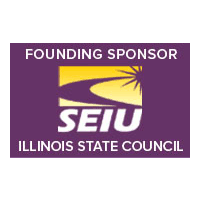Supreme Court Hears Case Dealing with Forced Payment of Union Dues

The U.S. Supreme Court heard a little-known case on Tuesday with important ramifications for public employee unions’ ability to collect dues from non-member workers.
In Harris v. Quinn, a group of homecare providers from Illinois resisting unionization are challenging existing law that allows public employee unions to force all workers at an agency to pay dues regardless of their union membership.
Such power was first bestowed to unions representing private sector workers, and was later extended to unions that organize government employees as well.
The current case, though, is only challenging the dues-collecting authority of public employee unions.
The plaintiffs want the court to overrule a 1977 decision (Abood v. Detroit Board of Education) which established the shared financial responsibility for all public workers in a collective bargaining unit.
Justices affirmed this right of public employee unions four decades ago on the grounds that unions are legally obligated to represent all workers at an agency in collective bargaining talks, including those who refuse to join it. Given this lawful mandate, the justices concluded it was reasonable for these unions to collect dues from everyone.
However, the Supreme Court also has declared that non-union members cannot be required to pay any dues that cover the union’s political or ideological activity. Making them to do so would violate non-members’ First Amendment rights, according to the court.
Unions watching the case say it would be “catastrophic” if the justices decide in favor of the homecare providers.
“(The plaintiffs) want to destroy things for working people in the U.S.,” Keith Kelleher, president of the Service Employees International Union (SEIU) in Illinois, told Al Jazeera America.
Those supporting the plaintiffs include the National Right to Work Foundation, which has been fighting compulsory union dues since the 1960s. It reportedly has ties to the Koch brothers, two of the most important financiers of conservative politics in the U.S.
“The idea that in order for a citizen to work for their government they can be forced to subsidize the speech of a private organization for representation they don’t want and never asked for, is contrary to the very core of the First Amendment,” Patrick Semmens, vice president of the foundation, said in a news release. “Union power achieved through forcing employees to associate with the union or to pay monies to the union should be seen as illegitimate.”
-Noel Brinkerhoff
To Learn More:
Argument Recap: Public Employee Unionism under Fire (by Lyle Denniston, SCOTUS Blog)
Argument Preview: Is Abood in Trouble? (by Lyle Denniston, SCOTUS Blog)
An Explainer on Harris v. Quinn and the Constitutionality of Fair-Share Agreements (by Max Utzschneider, On Labor)
Supreme Court to Hear Little-Known Case with Huge Implications for Unions (by Peter Moskowitz, Al Jazeera America)
Harris v. Quinn (SCOTUS Blog)
- Top Stories
- Unusual News
- Where is the Money Going?
- Controversies
- U.S. and the World
- Appointments and Resignations
- Latest News
- Trump to Stop Deportations If…
- Trump Denounces World Series
- What If China Invaded the United States?
- Donald Trump Has a Mental Health Problem and It Has a Name
- Trump Goes on Renaming Frenzy






Comments